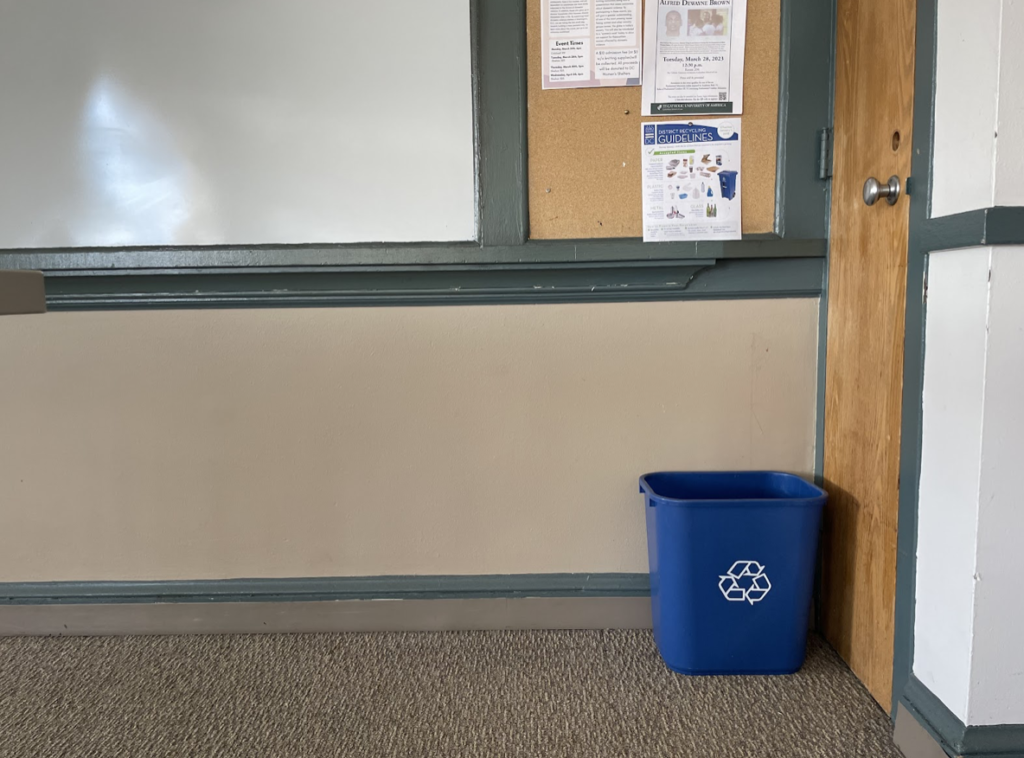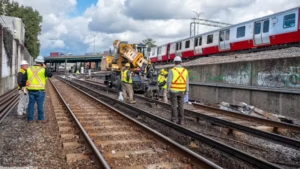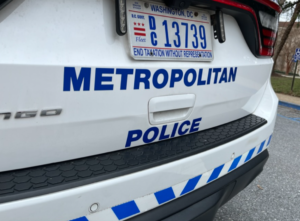The Catholic University of America Student Body is Terrible at Recycling

Image courtesy of Alaina Smith
By Alaina Smith
This is an independently submitted op-ed for our Quill section. Views and statements made in this article do not necessarily reflect the opinions of The Tower.
The District of Columbia has high standards for commercial, government, and residential properties in the district to meet their Zero Waste goals. Their waste reduction and diversion programs are applied to universities just as they are to the local Starbucks. As of 2018, these requirements now include:
- Supplying accessible recycling containers.
- Communicating information annually including how and what to recycle.
- Posting signs showing what to place in recycling bins.
The Zero Waste goal of D.C. recognizes the local, national, and global impact that municipal waste streams have. When local recycling waste streams become contaminated, it becomes fiscally smarter to export that waste to low-income communities and countries around the world that are ill-prepared to process and store the incoming, and potentially hazardous waste.
To prevent this environmental justice? Simple. Just ensure every student, staff, faculty, and visitor on campus recycles perfectly, just as they learned in grade school or from the numbers on the bottom of their plastic bottle. Not so simple after all.
At the beginning of the semester, my RA instructed our floor to bag our recyclables from our rooms before disposing of them into the plastic bagged recycling bins in the trash room. Plastic Bags are the second biggest contaminant found in single-stream recycling. Thin-film, stretchy, plastics cannot be recycled.
On a warm summer day, flies can be seen swarming around the blue bins of the Pryz. They are attracted to the recycled cups still sticky with Chick-Fil-A sweet tea.
Containers with food or liquid residue are the largest contaminants found in single-stream recycling. If your food or beverage container is not washed and clean from food residue – it is not recyclable.
How do we account for the wish-cyclers and the willfully ignorant? Those who recycle something in the hope that it can be repurposed and those who choose to pollute the waste stream alike must be taken into account to meet D.C. recycling goals and protect against environmental justice.
In short, WB Waste hauls both our trash and recycling. Recyclables on our campus are bagged due to the high contamination rates to keep the bins clean. The University accepts these high levels of contamination, and pays WB Waste an extra fee to remove the recycling from the plastic bags at their facility.
My conclusion, coming to the end of my senior year, is that waste is something we pay for. I hope CatholicU students can learn to improve their habits once they leave this campus as not every city they settle in will be willing to pay to process their contamination. Ignorance and negligence in recycling something as simple as a plastic bag has a cost, whether in the taxes for municipalities to pay for proper processing or in a low-income community across the world. Once that bottle enters the blue bin, our agency stops. It is the responsibility of every single individual to change their habits, and save lives.





